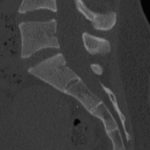What is Cipro?
Cipro is the brand name of the generic drug Ciprofloxacin. It’s a quinolone antibiotic that is used to fight or treat different types of bacterial infections in the body and it cannot treat flu, cold, and other viral infections. [1, 2, 3, 4]

Cipro was approved for Bayer healthcare by the FDA (Food and Drug Administration) in 1987 and in 2004 they approved the generic Ciprofloxacin for several drug manufacturers. It works by killing bacteria and preventing them from reproducing and repairing themselves. Cipro is available under several brand names including:
- Cipro XR
- Proquin XR
- Cetraxal
- Ciloxan
Uses of Cipro
Doctors prescribe Cipro to treat the following:[1, 2, 3, 4, 6]
- It is used to treat numerous bacterial infections including intra-abdominal infections, skin infections, joint and bone infections, typhoid fever, respiratory tract infections, certain type of infectious diarrhea, and urinary tract infections among others.
- Cipro could be used in the treatment of cervical and urethral gonorrhea because of Neisseria gonorrhoeae, chronic bacterial prostatitis, and acute uncomplicated cystitis.
- It is also used to treat people who have been exposed to anthrax or certain types of plague.
- It may also be used for some sexually transmitted infections (STIs).
Dosage
Your dose of Cipro will be based on the type of bacterial infection you have. An average dosage guideline for taking Cipro include:[4, 5]
- For adults, their dose is 250-1000 mg depending on your medical condition. The length of time you take it and time allowed between doses also will depend on your medical condition.
- The use and dose of Cipro in children must be determined by your doctor and in some medical conditions, the dose depends on their weight and age.
- For moderate joint or bone infection, 500 mg for 4-6 weeks every 12 hours.
Cipro Side Effects
Side effects of Cipro can be mild or serious and people using this drug experience side effects differently. Always discuss with your doctor about side effects because he or she knows your medical history, how your body may react to treatment with Cipro and the possible side effects that you may experience. Common side effects of Cipro include:[2, 4, 6, 7, 8, 9]
- Diarrhea
- Rash
- Nausea
- Vomiting
- Heartburn
- Itching
- Lightheadedness
- Insomnia
- Sore throat
- Cold symptoms
Allergic reaction
Cipro can also cause serious side effects. If you experience any signs of allergic reactions such as itching, breathing problems, hives, skin rash, and swelling of the mouth, lips, throat, tongue, or face, report to your doctor or health provider immediately.
Other serious side effects
Other serious side effects of Cipro that would require medical attention include:
- Confusion
- Tremors
- Chest pain
- Unusual bleeding or bruising
- Severe or bloody diarrhea
- Jaundice (yellowing of skin or eyes) or dark-colored urine
- Seizure
- Swelling or pain near a joint
- Severe or persistent dizziness
- Tingling, numbness, or weakness
- Depression or suicidal thoughts
- Loss of consciousness
- Fast or pounding heart
- Hallucination
- Vision problems and pain behind your eyes
- Sudden pain
- Agitation
- Ringing in your ears
- Fever or chills
- Inability to move or bear weight on a joint or tendon area
- A persistent sore throat
- Sunburn
- Worsening anxiety
- Nightmares
- Paranoia
- Unusual tiredness or weakness
- Vaginal yeast infection
- Blood in the urine
- A huge gain in weight
- Inability to pass urine
- Bruising of a joint area or a tendon
- Nervousness or restlessness
- Unusual cough
- Difficulty swallowing
- Tightness in the chest or throat
Serious adverse side effects
This drug may also cause side effects that are very serious and even life-threatening. Serious adverse side effects of Cipro include:
Swelling of the tendon or tendon rupture
Tendons are tough tissue cords that connect muscles to bones. Tendon rupture can happen to anyone who takes Cipro even children, however, those at higher risk of having tendon problems are people over 60 years old, people who have had heart, lung, or kidney transplant, and people who are taking steroids. Kidney failure, physical exercise or activity, and past tendon problems including people with rheumatoid arthritis may also increase chances of having tendon problems. Symptoms of tendon problems include swelling, inflammation, pain, and tears of tendons.
Worsening of myasthenia gravis
This is a condition which causes muscle weakness. Cipro may cause worsening of myasthenia gravis symptoms. This includes breathing problems and muscle weakness. Make sure to call your doctor immediately you notice worsening of these symptoms.
QT prolongation
Cipro may cause an uncommon heart problem called prolongation of the QT interval. This condition can cause an unusual heartbeat and can be very unsafe. Inform your doctor or health provider immediately if you experience heart rhythm changes. Those who are a higher risk of experiencing QT prolongation are those with a family account of prolonged QT interval, those with intestine infection, the elderly, people with low blood potassium, and people who use certain drugs to control heart rhythm.
Joint problems
Cipro may also increase chances of joint problems and tissues around joints in children under the age of 18 years. Report to your doctor if your child experiences any joint problems during or after treatment with Cipro. This drug may cause serious tendon, joint, or muscle problems when used in children and could last up to a month after quitting it.
Peripheral Neuropathy
This is a result of damage to your nerve and changes in sensation. People who take Cipro and other fluoroquinolones may experience nerve damage in their feet, arms, legs, and hands. The damage to the nerves can be permanent, therefore it is crucial to inform your doctor if experience any symptom of peripheral neuropathy including weakness, tingling, pain, numbness, and burning in your legs, arms, feet, and hands.
Hypoglycemia
If Cipro is take in combination with the oral anti-diabetes medicine glyburide, it can lead to hypoglycemia (low blood sugar) which can be severe sometimes.If you get low blood sugar with Cipro, tell your doctor about it. There may be a need to adjust your antibiotic medicine.
Cipro may also cause serious seizure and breathing problems if taken in combination with theophylline and these problems can be life-threatening.
Overdose side effects
As with most drugs, it’s quite possible to take more than the recommended dose of Cipro. Seek immediate medical attention if you have or suspect an overdose. The specific overdose side effects of Cipro include:
- Tremors
- Drowsiness
- Slurred speech
- Headaches
- Diarrhea
- Kidney problems
- Dizziness
- Nausea and vomiting
- Stomach or abdominal pain
- Disorientation
Reference List
- https://www.drugs.com/cipro.html
- www.healthline.com/drugs/ciprofloxacin/oral-tablet#Highlights1
- https://en.m.wikipedia.org/wiki/Ciprofloxacin
- https://www.everydayhealth.com/drugs/ciprofloxacin
- www.mayoclinic.org/drugs-supplements/ciprofloxacin-oral-route/proper-use/drg-20072288
- www.chealth.canoe.com/drug/getdrug/cipro
- https://www.drugs.com/cdi/cipro.html
- https://www.rxwiki.com/ciprofloxacin
- Cipro side effects available at www.bacteria.emedtv.com/m/cipro/cipro-overdose.html






